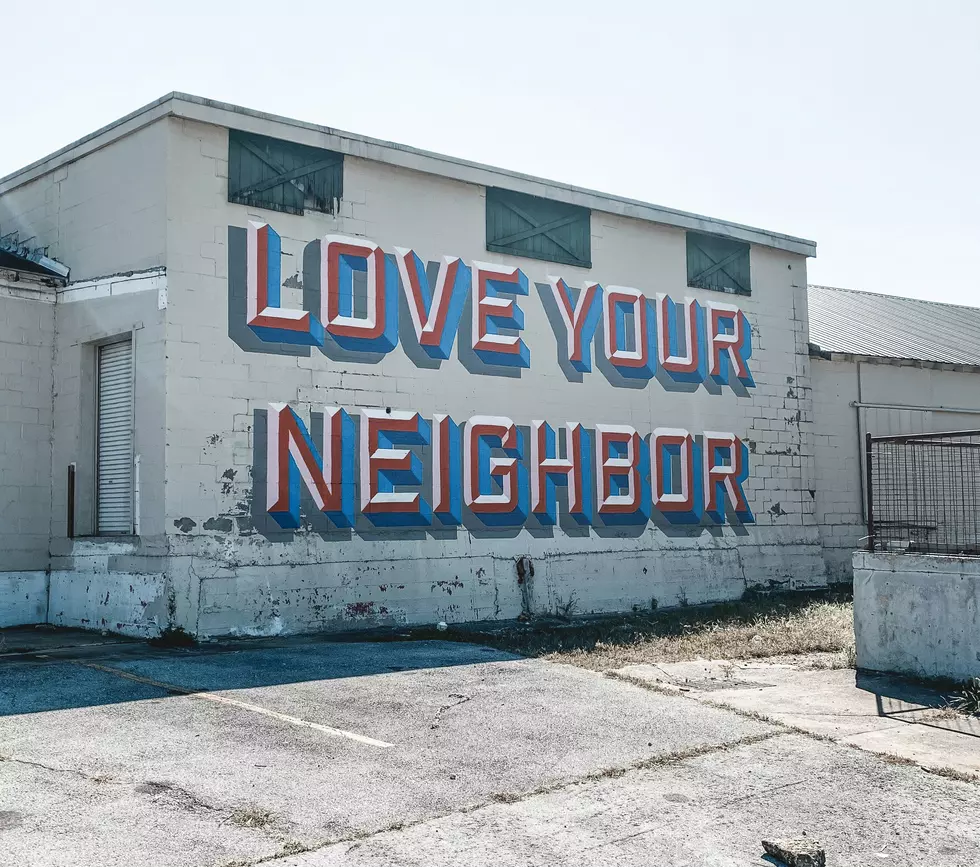40 Years Ago: The Clash Unleash a Punk Classic With Their Self-Titled Debut
The Clash wanted a riot of their own. And so they created one – not in the streets with bricks and bottles – but on stage and in the studio with guitars and words. And they got one with their self-titled debut, which was released on April 8, 1977.
The punk band’s founding members (Joe Strummer, Mick Jones and Paul Simonon) were art school students, each with a conscience about what was going on in their native London in the late ’70s. Everywhere they looked, the guys saw a city crumbling, with massive unemployment for their generation, fractious race relations and a seemingly uncaring government.
“I quickly realized that you either became a power or you were crushed,” Strummer said in the Westway to the World documentary.
Joe had been a member of pub rock band the 101’ers for a couple of years before they played on the same bill as a new band named the Sex Pistols in 1976. He claimed that, after hearing the Pistols, he knew his band were “yesterday’s papers.” Soon after, he was asked to front a new group being formed by guitarist Jones and bassist Simonon and managed by Bernie Rhodes (who wanted to battle Pistols manager Malcolm McLaren in the punk rock arms race).
Excited about doing something new and rougher, he agreed to join up. At one of the first practice sessions, Strummer dictated the direction for the new group. Jones and Simonon demonstrated a song they had been working on called “I’m So Bored with You,” which the guitarist had written about his girlfriend. Strummer rejected the title for its banality, and switched it to “I’m So Bored With the USA,” writing lyrics that decried American corporate influence in the U.K.
Listen to "I'm So Bored With the USA"
It was a key moment that would set the tone for the Strummer-Jones songwriting partnership: Joe’s socially conscious and passionate questioning of the status quo with Mick’s inherent sense for memorable melodies and intricate musicianship. It was fueled by their manager, Rhodes, who encouraged the guys to create original songs.
“All he said was, ‘Don’t write love songs,'” Strummer recalled to the NME in 1981, “‘write something that you care about, that’s real’.”
So they wrote about what they saw: “London’s Burning,” “Hate and War” and a lack of “Career Opportunities.” “Garageland” was written in response to an early review which suggested that Strummer and pals were a garage band that should go back to the garage with the door closed and the engine running. Jones penned “Remote Control” about the censorship the band experienced on a tour with the Pistols (who had recently sworn on live television).
Listen to "Garageland"
Then there was “White Riot.” The song came about when Strummer, Simonon and Rhodes were attending a festival hosted by Jamaican immigrants in August 1976. The relationship between police and that community had become frayed, which led to a riot between upset Jamaicans and the bobbies on that day.
“All hell broke loose, and I do mean hell,” Strummer recalled. “This was one time when people kind of went, ‘We’ve had enough and we’re gonna say so… now!’ And that’s what gave rise to the song ‘White Riot.’ Because we participated in the riot, but I was aware all of the time that it was a black people’s riot. They had more of an ax to grind and they had the guts to do something physical about it.”
The name of the band also came out of the violence that the musicians were witnessing. Simonon suggested “The Clash” because he noticed how often the word appeared in newspaper headlines about warring factions. The moniker seemed to suit the attitude of this band – which, in 1976, featured five members including additional guitarist Keith Levene and drummer Terry Chimes.
Those two weren’t long for the Clash. Levene was fired after the first few shows (and later founded Public Image Ltd. with John Lydon). Chimes informed Strummer he was leaving the band at the time they made their first demos in November 1976 – although he stayed on through the Clash’s sessions for their debut LP in the winter of 1977.
The demo tapes, and Rhodes’ brazen confidence, landed the Clash a record deal with CBS Records in January – to the disdain of some fans and even some confusion in the band, over how a group with a socialist ethos could team up with an entertainment corporation. Regardless, the Clash persevered, bashing out their self-titled debut in a series of weekends. A reggae cover, Junior Murvin’s “Police & Thieves” was added to make the LP long enough.
“There were not many guitar overdubs on the Clash album and the backing vocals were double tracked. We didn’t spend a lot of time on Joe’s vocals,” engineer Steve Levine told Louder Than War. “The way of working then was much more about capturing the live thing of what was happening. It was an exciting period and you got the sense that there was something really happening in music.”
With its raw sound, emotions and politics, The Clash was released with just the trio of Strummer, Jones and Simonon on the cover since the band was newly drummer-less (Nicky “Topper” Headon would join the same month the LP came out). The album was hailed by the punk-inclined music critics in the U.K., who had latched on to this new musical movement inspired by the New York Dolls, the Stooges and the Ramones and spurred by the Damned, the Sex Pistols and the Clash. The album hit No. 12 on the British charts.
Listen to "Police & Thieves"
But it would take a little longer for the Clash to have a significant impact on American shores. CBS’s U.S. division didn’t deem the band’s debut album suitable for release in the States, making the British edition one of the most successful imports in rock history. The Clash wouldn’t see an American release for more than two years (after the band’s second disc), with a drastically altered track list and running order, subbing in a bunch of the band’s subsequent singles for album tracks.
Both versions of The Clash have only grown in reputation in the past few decades as the album is now considered not just one of the best examples of punk rock, but one of the best rock records ever made. Although critical and fan consensus usually rank the LP just slightly below the Clash’s more wide-ranging opus London Calling, the band’s surviving members (Strummer died in 2002) prefer the debut.
“I like the first album best, actually. I like the kind of song it has, overall,” Jones said in Westway to the World. Simonon agreed in an interview with GQ: “The first album’s the best, because of the purity of the three of us going into the studio, not knowing what we were doing, coming out with that sound.”
The Clash Albums Ranked in Order of Awesomeness
More From The Moose 94.7 FM








